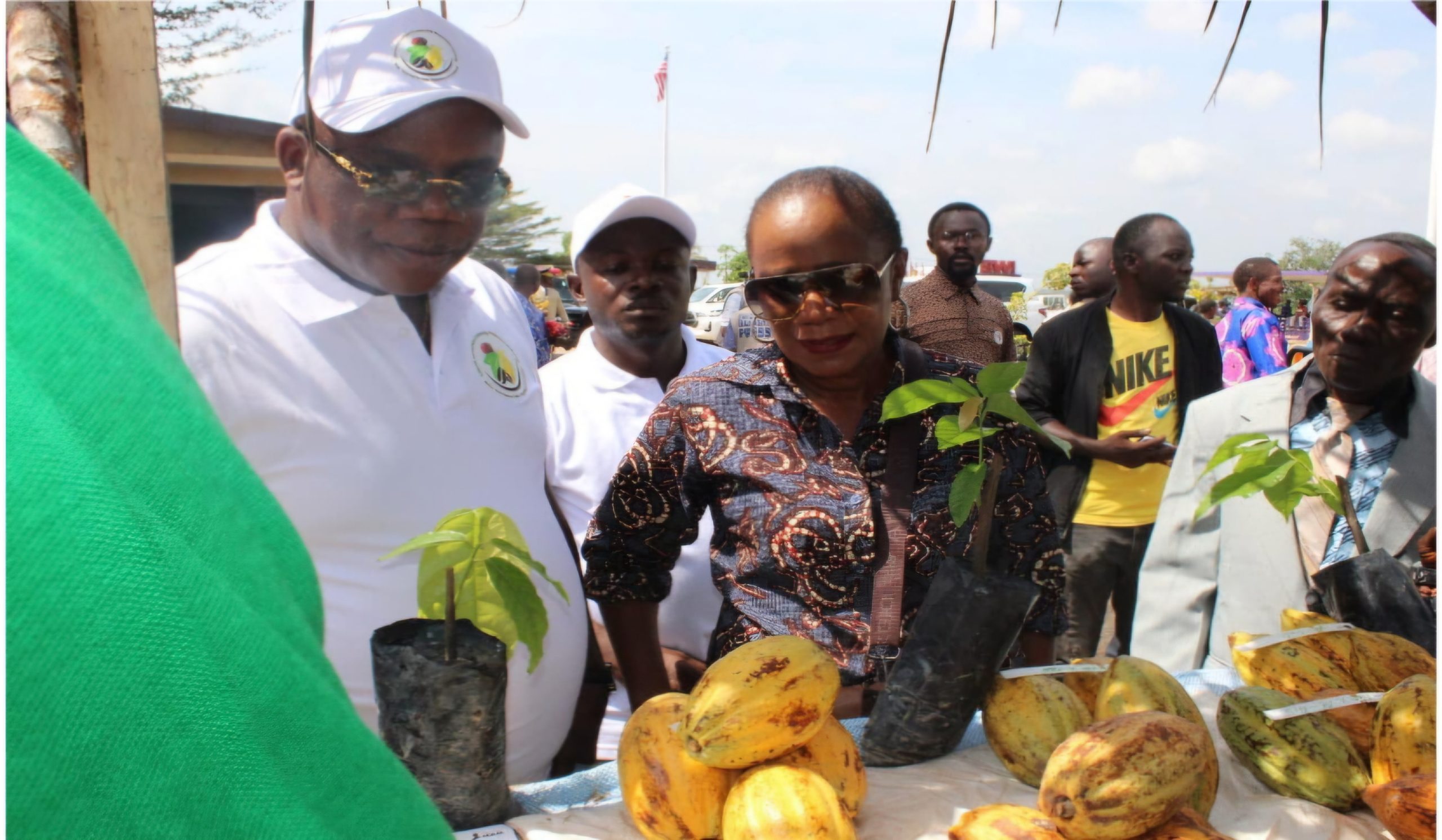The Liberia Agriculture Commodity Regulatory Authority (LACRA) has launched a five-month radio campaign to educate cocoa farmers and stakeholders about fair pricing, quality control, and sustainable practices in the cocoa industry.
The campaign, which will be broadcast on eleven community radio stations across six Counties, marks a significant step towards strengthening the cocoa sector in Liberia.
The initiative, which is part of LACRA’s efforts to enhance the livelihoods of cocoa farmers and ensure the sustainability of the industry, will focus on providing vital information to farmers about the current cocoa market, best practices in quality control, and the regulatory frameworks in place to safeguard the sector.
Among other things, The radio campaign is designed to reach farmers in remote and rural areas, where access to information about cocoa pricing and quality control mechanisms is often limited.
LACRA’s Director General, Christopher Sankolo speaking at the launch event, emphasized the importance of the campaign in fostering a transparent, fair, and competitive cocoa market in Liberia.
“This campaign will not only provide farmers with the tools to improve the quality of their cocoa but will also help them understand the pricing mechanisms that affect their earnings. Our goal is to empower cocoa farmers with the knowledge they need to thrive in the global market.” said the Director General.
At the same time, The radio campaign is expected to increase farmer participation in the formal cocoa market and contribute to better pricing for high-quality cocoa.
Additionally, It is also hoped that the initiative will help curb the challenges associated with cocoa production, such as low yields, improper post-harvest handling, and unfair pricing practices.
One of the significant elements of the campaign is the partnership with the Liberia Agricultural and Environmental Journalists Network (LAEJN), which will lead the implementation.
Leveraging its expertise in communication for development, LAEJN will be responsible for disseminating and monitoring tailored radio content that is accessible and informative for cocoa farmers.
LAEJN’s involvement will ensure that the campaign uses effective communication strategies to simplify complex issues like pricing mechanisms, best post-harvest practices, and cocoa quality standards.
Moreover, Programs will be aired in local languages to maximize understanding and address farmers’ concerns.
The campaign will be air across community radio stations in Bong, Lofa, Nimba, Grand Gedeh, River Gee, and Gbarpolu counties—regions central to cocoa production in Liberia.
These stations, trusted by their local communities, are expected to play a critical role in extending the reach of the campaign.
In a statement, the National Coordinator of the Liberia Agricultural and Environmental Journalists Network, Estelle K. Liberty expressed delight in partnering with LACRA.
She emphasized that the partnership reflects a shared commitment to improving the livelihoods of smallholder cocoa farmers across Liberia.
“We are excited to collaborate with LACRA on this important initiative and this campaign will not only help farmers better understand cocoa pricing and quality standards but will also serve as a platform for their voices to be heard.
Madam Liberty at the same time pledged their committment using their professional communication expertise to ensure the success of the campaign.
” LAEJN National Coordinator assured her counterparts that in a drive to enhance campaign effectiveness, LAEJN will deploy independent radio listeners at each participating community radio station.
These listeners will monitor the broadcasts to ensure quality and consistency while also conducting focus group discussions to generate real-time feedback from farmers on the campaign’s impact.
She narrated that such feedback will help assess the effectiveness of the messages and guide potential adjustments to the content.
According to her, The collaborative campaign aligns with Liberia’s broader goals of enhancing agricultural productivity, supporting smallholder farmers, and boosting rural economic development.



